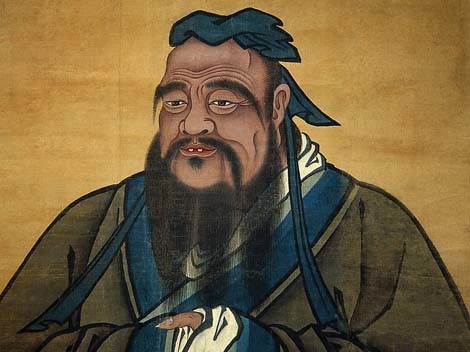Posted 2017/8/3
Confucius lived between 551 and 479 BC during the late years of the Spring and Autumn Period of China. He was a great thinker, educator and statesman as well as one of the most learnt people at that time. Later generations honored him as “the sage of sages” and “the teacher of all ages”.

Confucius was the founder of Confucianism, a school of moral doctrine that encourages “justice” and “peace”. Confucianism had a key influence on later generations and became the core of Chinese feudal culture, representing the Chinese cultural spirit.
Confucius was the first person in Chinese history to begin private education, bringing the access to knowledge learning, a privilege previously enjoyed by aristocrats, to the general public. The principle of “providing education for all people without discrimination” first proposed by him advocated that anyone, rich or poor, was entitled to education from him. Confucius adopted the teaching method of “educating someone according to his natural ability” and “heuristic education”. Meanwhile, he was tireless in teaching others and fostered good learning habits in his students. It is said that Confucius educated a total of 3,000 disciples, 72 of whom were outstanding ones. Therefore, the rich traditional Chinese culture have been promoted and inherited.

In order to realize his political propositions, Confucius kept on fighting for the restoring of the ideal social order in spite of all setbacks. At the age of 55, leading his disciples, he went on a lobbying tour in various states to promote his political beliefs. Although his thoughts were not accepted, he did not give up. For over thousands of years, his qualities of integrity, optimism and persistence have been causing a far-reaching impact on the Chinese people, especially the intellectuals.
The World Heritage Committee hailed Confucius as “a great philosopher, statesman and educator of the Spring and Autumn Period of China during the 6th and 5th century BC”. Nowadays, more and more people around the world are beginning to understand Confucius and the culture of Confucianism, with the establishment of one Confucius institute after another. Confucius is ranked the 5th of “the 100 most influential people in history”, indicating the great influence he had on China and the world as a whole.
Confucius was buried by the Sishui River in the north of Qufu City of Shandong, where the Cemetery of Confucius is today.